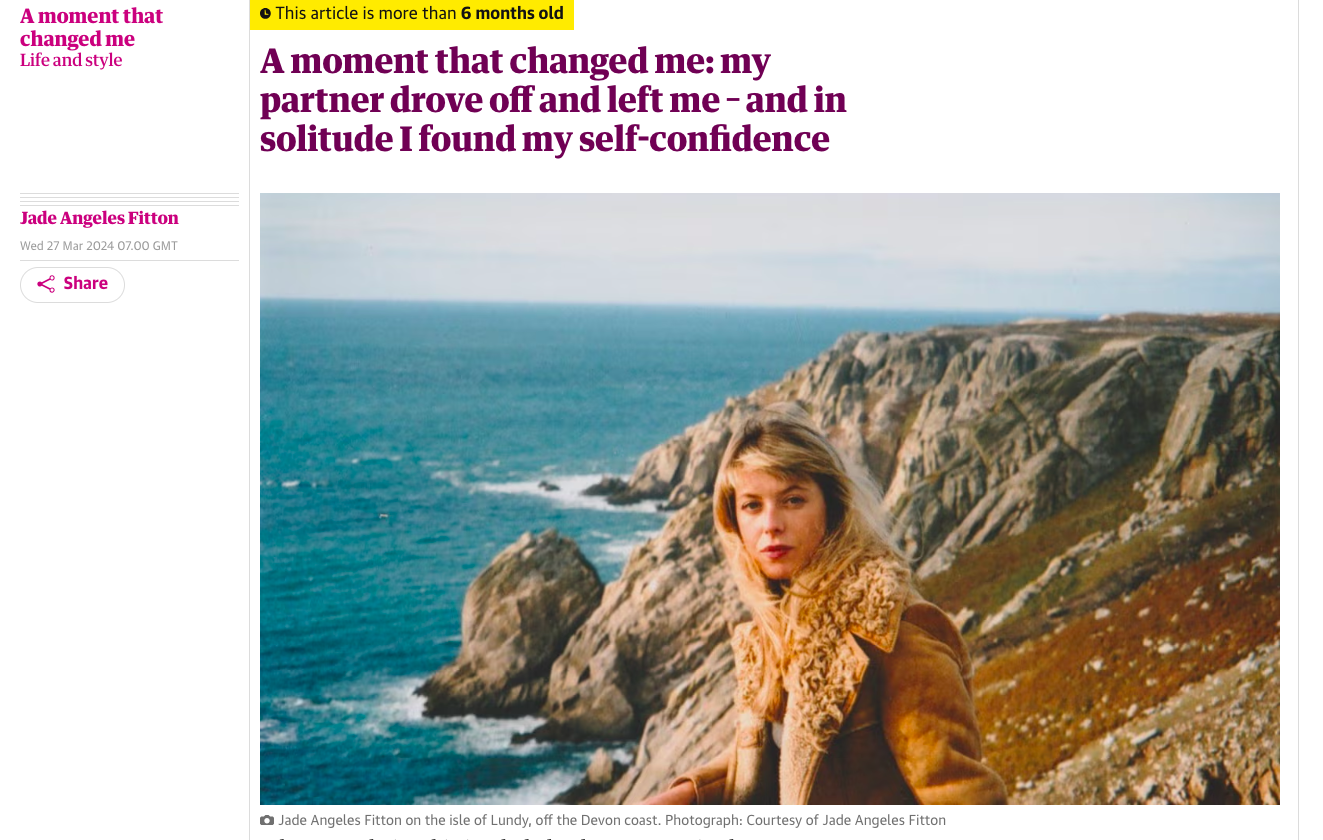For The Guardian I wrote about an ostensibly small moment during which I made a decision that changed everything for me. It was like being rewired. Read here.

For The Guardian I wrote about an ostensibly small moment during which I made a decision that changed everything for me. It was like being rewired. Read here.

May 15th
After a cold, grey week of watching the wind bully the trees, we’re back to beautiful mornings. Cool in the shadows but warm in the sun. Disaster is coming. Or it isn’t. Like a fox on a country road, frozen under the full-beam of an on-coming car in an otherwise black night, I don’t know which way to turn.
Forwards or backwards?
The decision is made for me. I have to go for a (routine) blood test— this is the furthest I’ve ventured in 6 weeks. I wear brightly coloured trousers to ward off evil spirits. And in case that doesn’t work, I’ve got the Dr. Death leather jacket back on so the virus will know to back the fuck up.
I listen to Ella Fitzgerald’s Manhattan while walking through dirty London streets still creaking with the weight of a pandemic, and it feels rather smug. Billy Holiday’s more the vibe. Civilisation as we know it has been put into question, as have our individual identities, which means men in white vans demonstrate their virility by using anyone attempting to cross the road as target practice. Paying them no mind, a man with a mask cycles with no hands up the empty street. I much prefer these kind of cyclists to the mid-life Lycra set who bellow “watch out” as they scream round a blind corner twice as fast as the speed limit.
The ice cream van’s been out for about a month, and the local cemeteries have been open for a couple of weeks, presumably for anyone who wants to save themselves the trouble and just launch themselves into an early grave now.
Apparently, you can get that bored.
The ravens and rooks hobble around like boys in baggy trousers. Flame licked iris are out and pink, purple, and white rhododendrons have burst onto the scene; beyond their haze of colour twisted roots and branches loop each other like a mangrove swap. Magpies skim along the ground like stones across the water.
When I go for a run the air by the lake is filled with glowing pollen blowing off the reeds that rustle reassurances on the wind. The haze makes the scene look like the summers when everything was golden. Already the earth is dry and cracked in places like my hands.
Continuing my cottage industry, I’ve sold some black stilettos on eBay now. Maybe whoever bought them’s going to the cemetery.
I dig at a kiwi with a spoon and its seeded flesh oozes out like frog spawn. It’s not ripe yet and makes my mouth water. I ripen hard plums in a chipped white bowl in the sun. The tomato plant I grew from seed has been indoors and survived the winter; it now thrives in the sitting room and droops like a willow under its green fruit.
Nothing is ripe yet.
Nothing is ready.
It’s all too soon.
But the sun is shining and there’s weed on the wind. As the evacuated stay in their second homes, gardens run wild and buttercups stand tall, begging for chins to glow up. The dust-covered cars are on the move again. Walking home laden with shopping, I listen to Bob Dylan and make a decision to serve no one but the ones I love.
We put on Rambo for some easy watching and are surprised to discover that it’s a masterpiece. It starts with a small incident and explodes into this epic psychological breakdown. Stallone is practically silent throughout the film, and only in the last five minutes does he really talk, and when he does, it floors me. The trauma. It floors me.
“Nobody would help! No one helped! He said, I want to go home, Johnny, I wanna drive my Chevy…”
An opera shrieks from the radio while I’m in the bath. It’s von Suppé’s The Devil on Earth, and what I gather is that in von Suppe’s future everyone is eccentric, but at a party two brothers are unable to elicit either any mischief or any romance. They conclude that in the future the devil has distributed himself evenly among everyone, so is everywhere but impossible to find.
It’s been a long time coming: face masks are fashionable, and they aren’t called face masks, they’re face coverings. I see a female politician wearing a coordinated mauve outfit and mauve face “covering” and find it infinitely more terrifying than the clinical alternative. I’m all about reusing masks and making them out of whatever fabric you want but… it’s the coordination. The consideration. This is our new reality and it’s unsettling how quickly something so sinister is assimilated into fashion.
May joy be unconfined, our downstairs neighbour’s taken up the bongos. Occasionally, the bongos are accompanied by some vigorous throat singing, which when it catches you off guard can be quite alarming, but I appreciate it’s certainly more musical than just screaming into a pillow.
I’m reading Shirley Jackson’s We Have Always Lived In The Castle this week. As well as being a surprisingly enjoyable read about a poisoning, it is a book about a type of isolation that makes what many of us are experiencing seem almost communal. I suppose all stories are stories of isolation if you look at them right.

Got Time To Watch Plums Ripen In A White Chipped Bowl
I’m delighted to say the awesome people at SomeSuch Stories have published my short story, LifeLine. About a woman in isolation who takes voyeurism a little too far. Read the story here.
